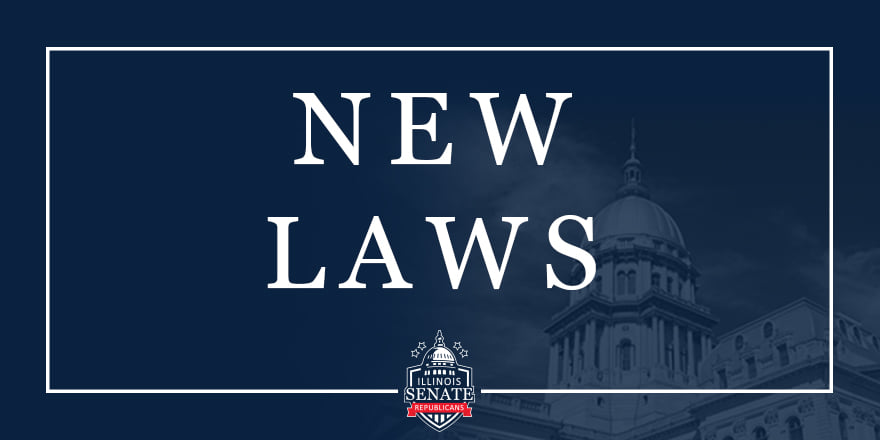
When Illinoisans ring in the new year, several new laws will take effect in Illinois.
A total of 195 new laws that cover a wide swath of content areas and affect Illinoisans in a variety of different ways will take effect on Jan. 1.
Here are some of the more noteworthy and impactful laws soon to take effect.
ELIMINATION OF CASH BAIL AND OTHER PROVISIONS OF THE SAFE-T ACT
Legislators approved the SAFE-T Act in the final hours of a Lame-Duck Session of the Legislature in January 2021. While some provisions have already taken effect, many will be mandated as of Jan. 1, 2023.
Perhaps the most controversial element of the SAFE-T Act, the elimination of cash bail, takes effect across Illinois on Jan. 1. Opponents, including the Senate Republican Caucus, believe the sloppily written law puts law enforcement and public safety at risk and does not give judges enough discretion to be able to keep violent offenders behind bars as they await trial.
Other provisions of the SAFE-T Act that take effect on Jan. 1, 2023, include:
Anonymous complaints
Whereas previous complaints against police officers had to be signed by the complainant, as of Jan. 1, any person can file an anonymous complaint against a police officer with the Illinois Law Enforcement Training and Standards Board (ILETSB).
Resisting or obstructing a peace officer changes
A trailer bill to the original version of the SAFE-T Act passed earlier this year made some clarifications to the area of the law relative to “resisting or obstructing.” For resisting, there now must be an underlying offense for which the person was initially subject to arrest. For obstructing, there does not need to be an underlying offense.
No custodial arrests on Class B and C misdemeanors
Beginning in January, law enforcement can no longer arrest individuals accused of traffic offenses and Class B and Class C criminal misdemeanors when the accused person poses no threat to the community or any person. In these cases, officers will only be able to issue a citation. Examples of this new provision would be Peeping Toms and individuals who engage in criminal trespassing at a residence. Under the new provisions, only a citation can be given.
Body camera mandates
Body camera mandates are taking effect on a tiered schedule according to the size of a jurisdiction. In the original schedule, municipalities, and counties with populations between 100,000 and 500,000, body cameras were to be required on Jan. 1, 2023. However, in the latest trailer bill, HB 1095, local governments of that size now have until July 1, 2023, but only if they ordered their cameras by October 1, 2022.
MOTOR FUEL TAX INFLATIONARY INCREASE (Delayed from July 1, 2022)
A temporary “freeze” to the motor fuel tax will be over almost as quickly as it began. While legislators had an opportunity in 2022 to provide real, permanent gas tax relief, the Majority Party chose instead to temporarily suspend the statutory July 1, 2022, inflationary increase to the motor fuel tax. The six-month, politically motivated suspension ends just a short time after this year’s General Election. As a result, Illinoisans will get hit with two motor fuel tax hikes in 2023— the temporarily suspended increase on Jan. 1, 2023, which will be 3.1 cents, and then the normal July 1, 2023, inflationary increase.
MINIMUM WAGE
The annual increases in the state’s minimum wage continue, and on Jan. 1, 2023, the minimum wage for most workers will increase to $13 per hour. The minimum wage for those who receive tips for their work (i.e., restaurant servers) will raise to $7.80 per hour, and the wage for those younger than the age of 18 who work fewer than 650 hours per year will increase to $10.50 per hour. Annual increases continue until Jan. 1, 2025, when the minimum wage hits $15 per hour.
Click here to view a comprehensive list of the more notable laws taking effect on January 1.

